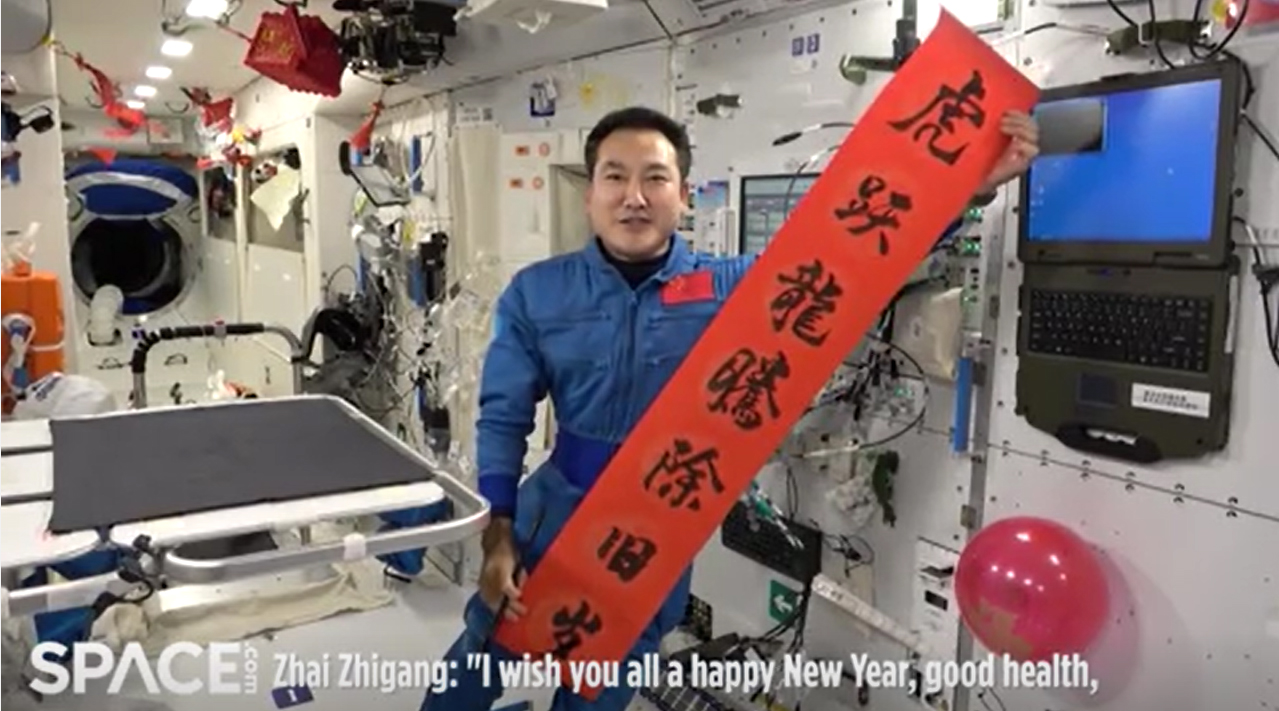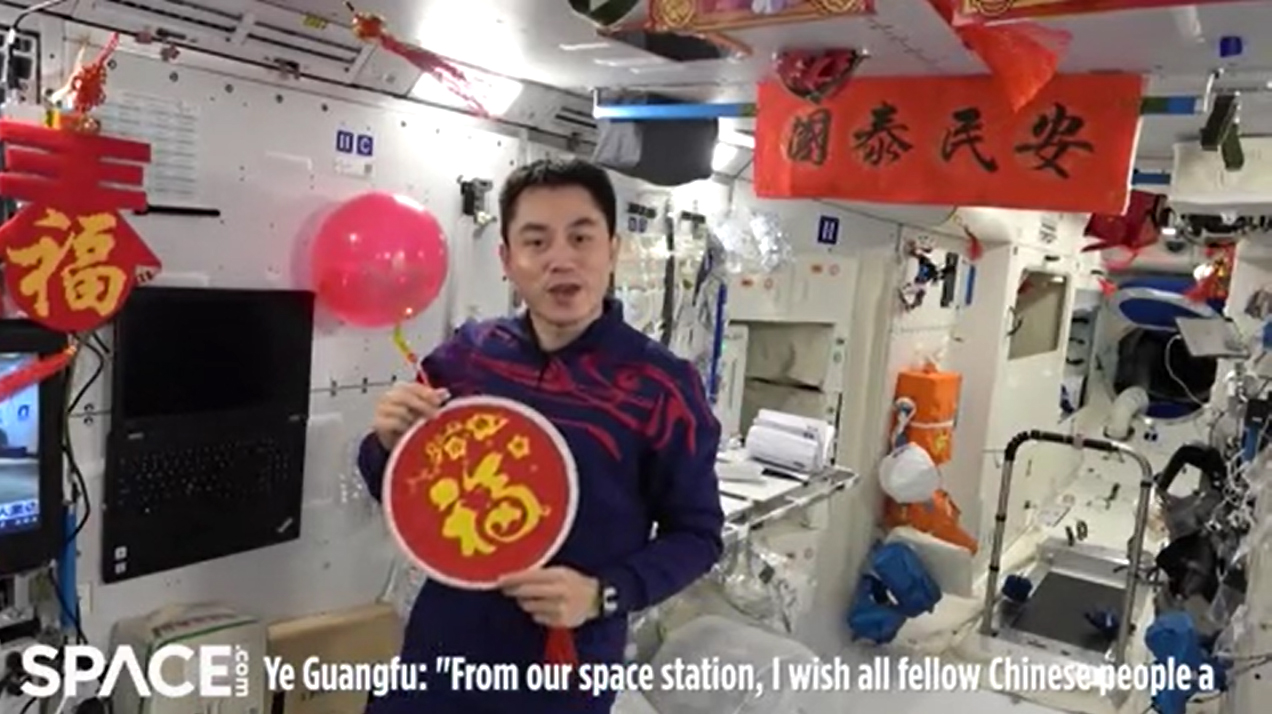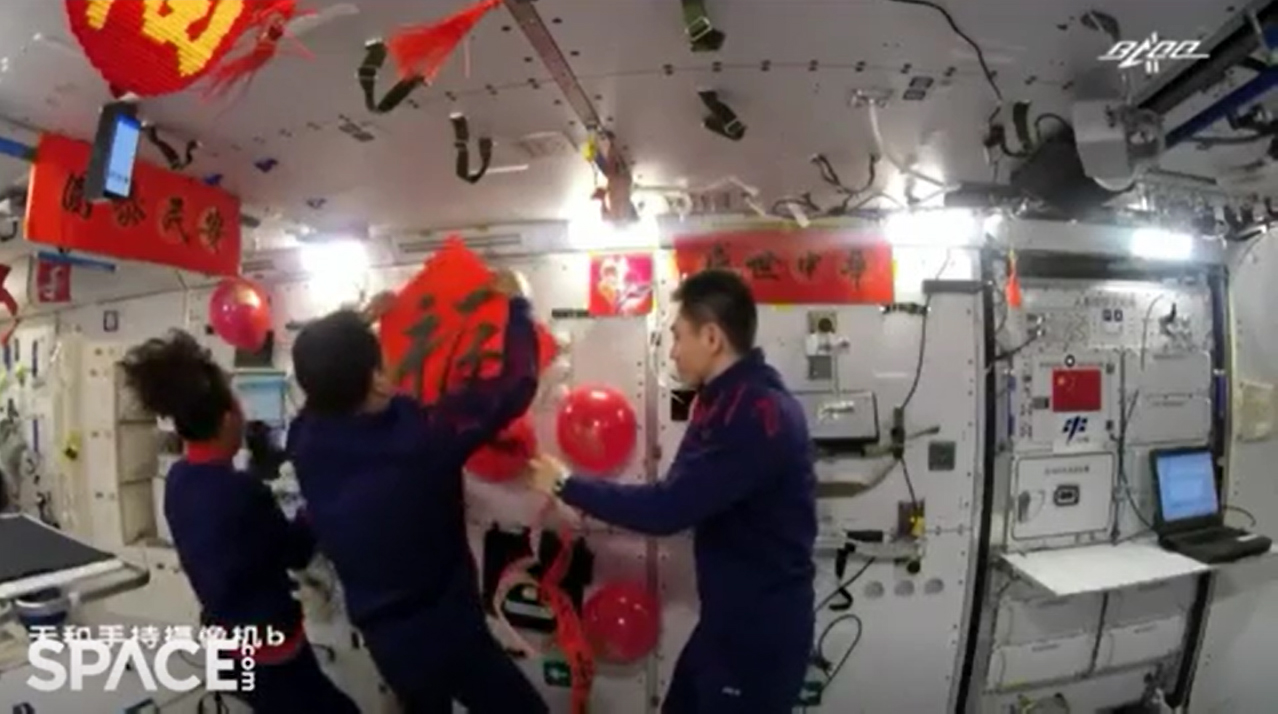Chinese astronauts celebrate lunar new year on Tiangong space station, a first
The core module of their space station is adorned in festive red.
Festive red adorns China's Tiangong space station in new footage celebrating the lunar new year in orbit, kicking off the Year of the Tiger.
The Shenzhou 13 astronauts are the first to celebrate the holiday in orbit, according to the China National Space Administration, and were given ample supplies to do so. "They have decorated the space station core module with traditional Chinese paper-cuts, spring festival couplets ... and red lanterns," state provider CCTV said in a recent update.
"I wish you all a Happy New Year, good health, good luck and an auspicious Year of the Tiger," commander Zhai Zhigang says in footage from CCTV, which the media outlet translated into English. Joining Zhigang in the festivities in the Tianhe core module of the station are Wang Yaping and Ye Guangfu.
Chinese New Year happens on the new moon between Jan. 21 and Feb. 20, which places this year's holiday on Tuesday (Feb. 1). It is one of the most important holidays in the country and is often marked (on Earth) with fireworks or firecrackers.
Related: The latest news about China's space program




Shenzhou 13 lifted off from Jiuquan Satellite Launch Center in the Gobi Desert Oct. 15, aboard a Long March 2F rocket. The mission has already broken one Chinese record, with Wang becoming the first woman to live aboard the core module.
The taikonauts aim to spend roughly six months in orbit, double the duration of Shenzhou 12, the only other mission so far to visit Tianhe with an all-male crew.
Breaking space news, the latest updates on rocket launches, skywatching events and more!
So far, the crew has continued station construction with a spacewalk in November 2021, livestreamed a science lecture for Chinese students that December and manually flew a cargo ship in January to test emergency procedures and docking.
Increased Chinese activities in space and cybersecurity worries, however, have caused concern both from the Biden administration and from senior NASA officials, who see the country as seeking space superiority in its crewed launches along with recent missions at the moon and Mars.
A 2011 Congressional directive called the Wolf Amendment prohibits NASA from using federal funds for direct, bilateral cooperation with the Chinese government. As such, China is not a partner on the International Space Station project and does not collaborate with NASA on robotic missions.
Follow Elizabeth Howell on Twitter @howellspace. Follow us on Twitter @Spacedotcom and on Facebook.

Elizabeth Howell (she/her), Ph.D., was a staff writer in the spaceflight channel between 2022 and 2024 specializing in Canadian space news. She was contributing writer for Space.com for 10 years from 2012 to 2024. Elizabeth's reporting includes multiple exclusives with the White House, leading world coverage about a lost-and-found space tomato on the International Space Station, witnessing five human spaceflight launches on two continents, flying parabolic, working inside a spacesuit, and participating in a simulated Mars mission. Her latest book, "Why Am I Taller?" (ECW Press, 2022) is co-written with astronaut Dave Williams.
